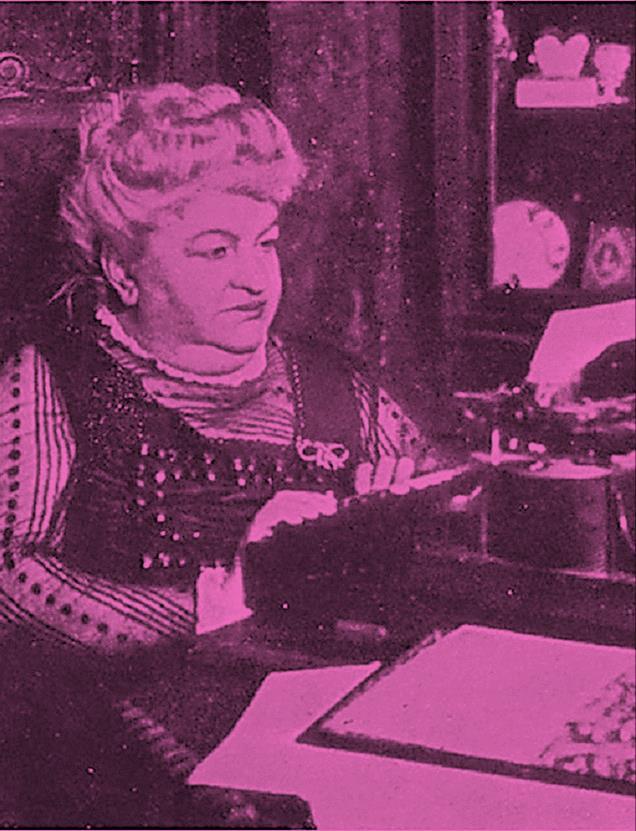
3 minute read
Emilia Pardo Bazán (Olivia Robles and Andrés Rodríguez
Emilia Pardo Bazán
Olivia Robles and Andrés Rodríguez
Advertisement
Hello, my name is Emilia Pardo Bazán de la Rúa-Figueroa, but you can just call me Emilia Pardo Bazán or Pardo-Bazán, that is how I am known.
I was born on September 16th 1851 in La Coruña, and I died on May 12th 1921 in Madrid.
I was a Spanish noblewoman and novelist, feminist, journalist, poet, translator, editor, professor, lecturer and more things. My passion was always literature and writing, that led me to write my first stories when I was only nine years old.
During my life several important historical events arose in Spain. The Third Carlist War took place when I was 21 years old. Then the First Republic was established in Spain and in 1875 Alfonso XII was appointed king of Spain, so the restoration of the Bourbons took place. There was also the Regency of María Cristina when he tragically died. Two more important events that took place were the foundation of the CNT (National Confederation of Labour) and internationally, the arrival of the First World War.
In my days, women did not have lots of rights and we received scarcely or none education since we were not allowed to go to university or study secondary school. But I can say that I was privileged. My parents were Earls, so I could receive a good education. In fact, I declined to obey
laws that confined women to studying music and home economics only. My dad was liberal and he favored my literary vocation. He also supported feminism, so I can say I was also privileged in that way because he always transmitted to me the idea that men and women were equal, and that women should have the same rights as men. Although I can say that I had a good education and not a bad life, I confronted problems all women suffered during that time just because of being a woman. I could not go to university because it was forbidden for women as I said before. Another problem that I had was that my husband did not want me to dedicate myself seriously to literature so I separated from him. I am proud of what I achieved throughout my life, I presented for first time feminist ideas into the literature of my era, I introduced naturalism to Spain and I was one of the most important female writers in Spain. I opposed publicly against the education received by Spanish women, who constantly emphasized ideals such as passivity, loyalty and submission to their husbands. My works: "Los Pazos de Ulloa'', "La Tribuna" and "La madre naturaleza" are one of my most recognized works and the ones that have had the most fame. I also was the first woman to preside over the literature section of the Ateneo of Madrid.
I consider myself a powerful woman who did not stop fighting until it was able to do the things I always dreamed to achieve. I was the owner of my fate and that is what really mattered to me. I would say and request future generations not to stop fighting for equal rights, not to stop believing in an equal world. As you know my views on women’s educational rights had a great impact in society, so I hope you share them and continue what I began. I would like to encourage you to fight for a feminist society where women and men are equal. And I would also ask you to never lose a literary spirit, and never give up as I showed during my life.
SCAN ME AND LISTEN TO THIS TESTIMONY











